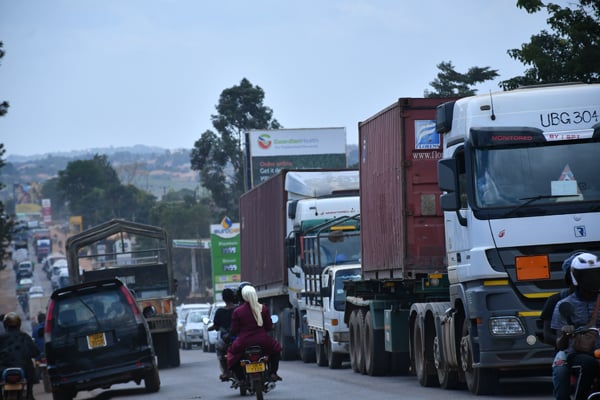Prime
Museveni explains high prices of commodities

Traders and customers in Nakasero Market on Saturday. President Museveni has said the government will not intervene in the rising commodity prices. Photo / Abubaker Lubowa
What you need to know:
- Speaking during the National Resistance Movement (NRM) Parliamentary Caucus meeting on Tuesday, Mr Museveni attributed the runaway prices to distortions in the supply chain caused by the collapse of sectors of the economy that were badly hit by the Covid-19 pandemic and resultant containment measures.
President Museveni has said the government will not intervene in the rising commodity prices, dealing a heavy blow to citizens who expected government to fix the crisis.
Speaking during the National Resistance Movement (NRM) Parliamentary Caucus meeting on Tuesday, Mr Museveni attributed the runaway prices to distortions in the supply chain caused by the collapse of sectors of the economy that were badly hit by the Covid-19 pandemic and resultant containment measures.
“What happened was the following; when we had Corona, the service industry in the world collapsed. Tourism, hotels, air transport, everything collapsed because when you have got hotels, you use more soap. Now when they all collapse, the consumption of soap goes down and because it has gone down, I think the producers of the raw materials for soap, [maybe] go bankrupt because many producers went bankrupt. So when Corona now has sort of reduced, the economy has opened, the demand is high but the suppliers are few,” he said.
Mr Museveni said it would be even more catastrophic to introduce measures like subsidies.
MPs, who attended the meeting and asked not to be named, told Daily Monitor that the President said government cannot subsidise the prices like it has been proposed by some people because that will be “fake” economics.
“It cannot be sustainable because it will erode the foreign currency reserves that can only support up to four months of imports. This may also distort the foreign currency exchange market which has hitherto been stable. Price subsidy may also lead to reckless consumption tendencies,” an MP said.
The same position, when earlier given by the Permanent Secretary at the Ministry of Finance, Mr Ramathan Ggoobi, was interpreted by a section of Ugandans as government turning its back on them.
Prices of essential commodities such as fuel, laundry soap, and cooking oil have doubled over the past months, leading to a high cost of living.
The President also took a swipe at those he said frustrate investment plans, faulting them for failing the long held NRM agenda to create a self-sustaining economy.
“But this is also partly the fault of the structure of the society in Uganda because the NRM, these fellows from the bush, have been begging Ugandans to always build our own capacity. That is why we started the palm oil project in Kalangala in order to produce tallow for making soap, and we were expanding. They wanted more land, but [there is a] big war now on the land,” he said.
He added: “I gave them land in Buvuma, it was contested, compensation, I do not know what, but if you are a Ugandan, even if the government has no money to compensate, you know this is important for your country, why can’t you say okay you start when you get the money you will compensate me.”
Sources told this publication that the President is benching on import substitution, for instance the increased production of palm oils for the production of raw materials for oil and soap making, to sustainably deal with the high prices.




